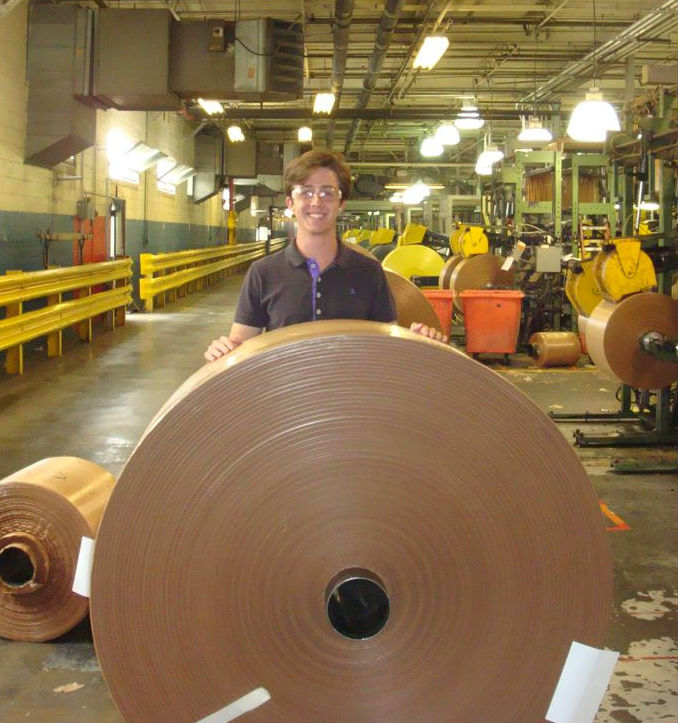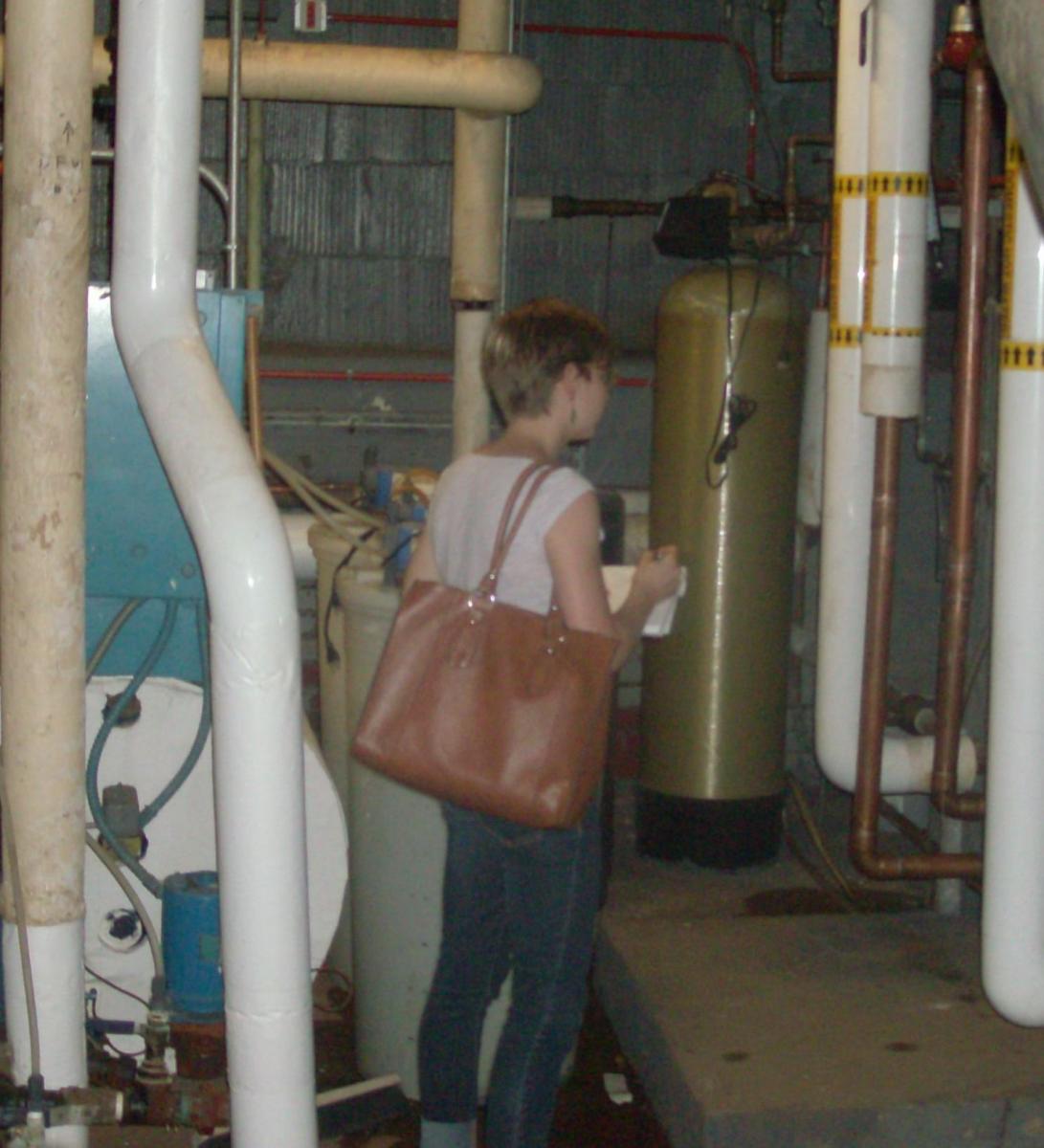EDF Climate Corps fellow | July 26, 2013
John Culver and Alice Kodama are two EDF Climate Corps fellows from Duke University’s Nicholas School of the Environment. This summer they are working at Hilex Poly and the Philadelphia Housing Authority identifying energy efficiency opportunities. Read below to learn about their passions for technology and efficiency, and how both of them are using compelling numbers to back their findings that saving energy saves money.
Name: John Culver 
School: Duke University
Hometown: Merritt Island, FL
Host Organization: Hilex Poly
Q: Why did you apply for EDF Climate Corps?
A: I grew up near NASA and felt as though I had a strong understanding of technology’s beneficial impact on the world, and I also have a unique understanding of business. When an EDF Climate Corps alumnus told me about the fellowship, I felt like I could relate to the business leaders and show them the benefits of energy efficiency using my grasp on new technology. The program seemed like an interesting and exciting combination of two areas I am passionate about.
Q: What are some of the projects you’ve had the opportunity to work on?
A: I’ve had the chance to perform site assessments on Hilex Poly’s industrial manufacturing plant and have been getting into contact with investors and stakeholders to make the plant run more efficiently saving both energy and money. Hilex Poly is also beginning to work towards the goal of making their recycling plant a net zero facility. I’ve been helping to turn this goal into a reality by working with outside vendors to design a solar panel system on the roof and utilizing fuel cells to power motors and offices within the facilities.
Q: What are some barriers or difficulties you’ve encountered?
A: Successfully navigating and utilizing all of the helpful utility rebates, tax incentives and “hidden” free money that can pay for most of Hilex Poly’s energy efficiency projects.
Q: What are some solutions you have identified while facing those difficulties?
A: Setting up a utility provided basic energy information system has been extremely helpful. The system has allowed my managers to see their personalized energy use profiles within the plant, how much they are using and when they can cut down on that usage. Based on some of these profiles, I’ve identified potential savings of about $350,000. I am working with the leadership team to realize these savings through cost free behavioral changes around the office.
Q: What is one thing you’ve learned this summer?
A: I’ve learned that most people are very open to new ways of thinking, including ones that have to do with energy and the environment. Sometimes they just need a little convincing which has gotten much easier now that they can see their energy profiles.
Name: Alice Kodama 
Hometown: Lehigh Valley, PA
School: Duke University
Host Organization: Philadelphia Housing Authority
Q: Why did you join EDF Climate Corps?
A: I wanted to gain practical knowledge and transferable skills, in other words, an experience with tangible results. The opportunity to connect with experts in the energy efficiency field has also been very beneficial.
Q: What are you working in this summer?
A: I’m working on two major projects for the Philadelphia Housing Authority (PHA). The first was completing our application for the SPI-HUD Green Organizational Accreditation. I helped gather goals and evidence of current sustainable work for the application. Participating in the accreditation meant PHA created a lot of great sustainable standards, goals and guidelines to move forward with. For the second project, I’ve benchmarked five PHA senior sites and selected a site that would benefit the most from an energy efficiency project. I’ve identified lighting, hot water and heating saving opportunities that I’ll present on at the end of the summer.
Q: What is one thing you’ve learned this summer?
A: I’ve re-learned that you cannot have too much official documentation to help your case. If you have numbers and proof then you have the ammo you need to make valuable change.
Q: What has been the best part for you about working at the Philadelphia Housing Authority?
A: The best part has been learning how to effectively communicate the broad implication of sustainable changes. Learning how to reiterate the big picture of why we’re doing the SPI-HUD Green Organizational Accreditation and doing so efficiently with a confident tone, but in a non-threatening way has been really valuable.
Q: What is the mark you want to leave on the world?
A: My pet peeve is systems that don’t run efficiently. I hope that any system I work in becomes more efficient afterward.
This post is a part of our "Interviews with Tomorrow's Leaders" series. Stay tuned for more interviews with our 2013 EDF Climate Corps fellows!
About EDF Climate Corps
EDF Climate Corps (edfclimatecorps.org) taps the talents of tomorrow’s leaders to save energy, money and the environment by placing specially-trained EDF fellows in companies, cities and universities as dedicated energy problem solvers. Working with hundreds of leading organizations, EDF Climate Corps has found an average of $1 million in energy savings for each participant. For more information, visit edfclimatecorps.org. Read our blog at edfclimatecorps.org/blog. Follow us on Twitter at twitter.com/edfbiz and on Facebook at facebook.com/EDFClimateCorps.